The second, from physicist Paul Dirac:
"In science one tries to tell people, in such a way as to be understood by everyone, something that no one ever knew before. But in poetry, it's the exact opposite."
Poetry, science fiction, fantasy, horror, and culture from a Lao American perspective.
The Annual Dinner to commemorate May as Asian Pacific American Heritage Month will be held on Friday, May 15, 2009 from 6:00 pm to 9:00 pm at the Hmong American Center, home of the non-profit organization, Hmong American Partnership. It is located at 1075 Arcade Street in St. Paul.
The cost of the dinner is $25.00 per person and sponsorships of the dinner is welcomed and still available. The dinner is a unique, special event which brings many differing ethnic groups and organizations together in celebration.
The dinner program will consist of a keynote address by Jon Campbell, Wells Fargo Bank’s Head of Social Responsibilities Group; the presentation of the annual Asian Pacific Leadership Awards; and a cultural performance by Julie Troung of the Chinese American Association of Minnesota’s Dance Theater.
The Council is pleased to announce this year’s slate of awardees for the “Asian Pacific Leadership Awards”:
Mr. Tanweer A. Janjua for outstanding contribution and demonstrating vision and leadership in civil engagement through his educational efforts and outreach to get out and increase the Asian American and Pacific Islander vote;
Mr. K. Dennis Kim, Ph.D., P.E. of EVS, Inc. for outstanding contribution to his field and showing leadership and vision in the business sector; and
Mr. Bryan Douglas Thao Worra, National Endowment of the Arts Literature Fellow, poet and activist for outstanding contribution to the Asian Pacific Islander arts and literature movement in Minnesota.
Additionally, the Board has chosen to recognize Mr. Vy V. Pham with the “Distinguished Service” Award for his many years of commitment to and efforts on behalf of the community and public service.Congratulations to the other recipients of Asian Pacific Leadership Awards as well!
This year’s theme will be “Across the Waves: In Pursuit of a Good Life.”
Here is a photostudy of Lao food in California. As you can see, there is an extraordinary amount of diversity and flavors to be found within Lao cooking. Enjoy!
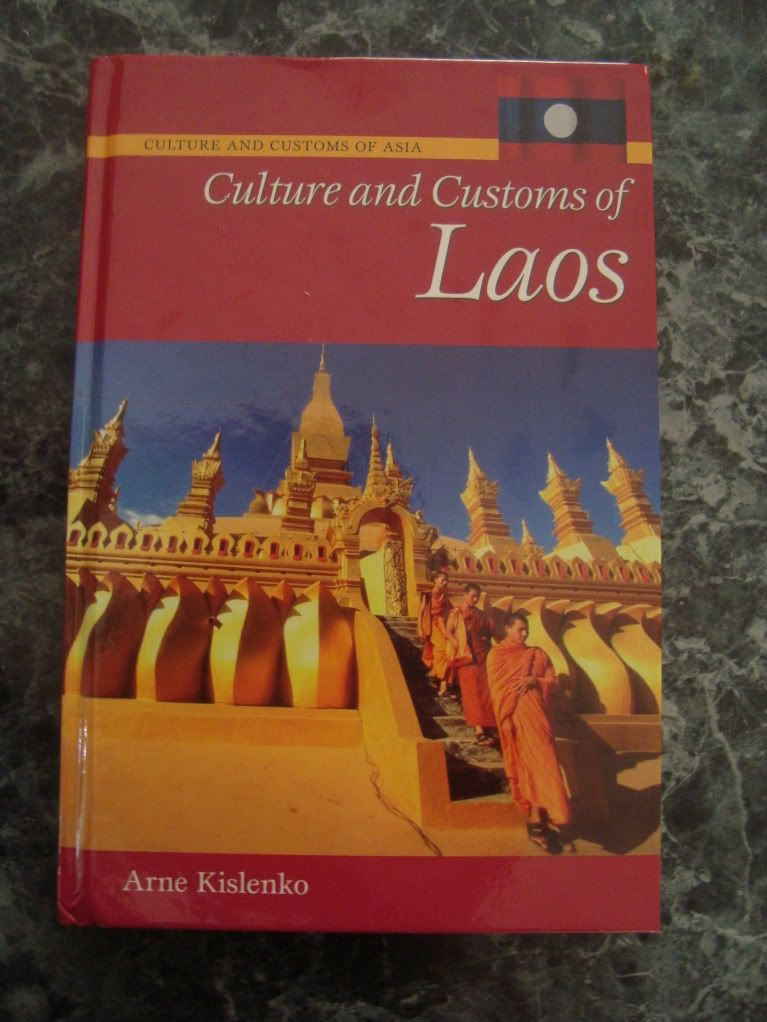
Twelve recent Minnesota State Arts Board Grantees present an evening of visual art, writing, and music, to benefit Kulture Klub, an independent nonprofit arts organization that brings together homeless teens and artists.
Each artist will showcase recent work in a five-minute presentation: there’s two poets (Todd Boss and Bryan Thao Worra); two photographers (Chelsea Hammer and George Byron Griffiths); two fiction writers (Laura Owen and Marcia Peck); a film maker (Kevin McKeever); a visual artist (Nathan Freeman); three non-fiction writers (Kara Garbe, Dhana-Marie Branton, and Jacqueline White); and a musician (Julie Johnson). Not your usual placid reading, this event will be varied and fast-paced, with something to please all kinds of artistic tastes.
The event will take place on Wednesday, June 10th, at the Loft Literary Center, located in Suite 200, Open Book, 1011 Washington Avenue South, Minneapolis, 55415. Open Book is located on Washington Avenue near the University of Minnesota's West Bank campus. For further information: www.loft.org.
Presentation begins at 7 p.m. and will be followed by a reception with food and drinks. Admission will be by donation (suggested donation: $10-15).
About Kulture Klub. Kulture Klub Collaborative brings together artists and homeless teens at YouthLink/Project OffStreets, a drop-in center located in downtown Minneapolis. Kulture Klub describes their mission thusly: “Kulture Klub brings dignity and respect to homeless youth and to artists, catalyzing new relationships between art and community. Kulture Klub is a bridge for at-risk youth to move from isolation to expression, towards finding a voice of participation in their communities.” You can find out more information at www.kultureklub.org.
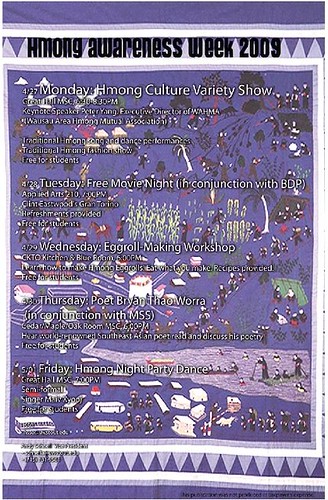
Thanks to the wonderful students of the University of Wisconsin-Stout, I'll be returning to the University to read my poems as a presentation on the war for Laos and its relevance and lessons for today in "Secret Wars, Deeper Truths." I'll be appearing at:
University of Wisconsin-Stout
302 10th Avenue East Menomonie, WI 54751
Phone: 715/232-2000
I will present in the Cedar/Oakwood Room! It's free and I hope to see you there!

Great news from AALDEF:
In a welcome but abrupt about face, Storm Lake School District has reclassified Asian American Legal Defense and Education Fund (AALDEF) client Lori Phanachone as English proficient and restored her National Honor Society membership. After stripping the 3.98 GPA student’s National Honor Society membership for refusing an English Language Learner (ELL) test, the school district has met AALDEF’s demand to restore her membership. The district has also met AALDEF’s demand to reclassify Ms. Phanachone as English proficient.
Khin Mai Aung, Ms. Phanachone’s attorney at AALDEF, said: “Storm Lake is finally moving in the right direction by reclassifying Lori as English proficient, and restoring her hard earned National Honors Society membership. We are thrilled about this development, but continue to seek assurances from Storm Lake on other pending matters.”
Ms. Phanachone was mislabeled an ELL for naming Lao as her home language, without an English proficiency assessment, when she moved to Storm Lake two years ago. Ms. Phanachone has since been subjected to yearly ELL testing while excelling in advanced courses taught in English. This year, she boycotted a yearly ELL test in protest, resulting in a 3- day suspension, exclusion from extracurriculars and loss of her National Honor Society membership.
Lori Phanachone said: “We still need a lot of answers, but I feel really good that my academic honors have been restored, and I no longer have to worry about being classified as an ELL.”
Among other things, the following demands by AALDEF are still pending with Storm Lake School District:

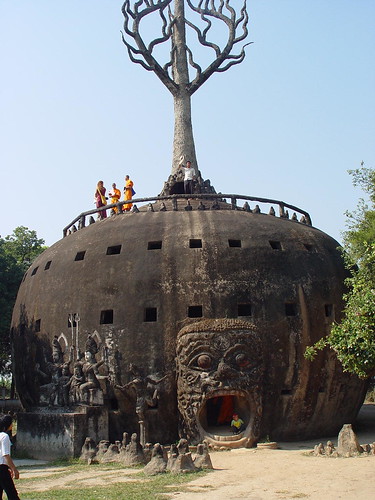
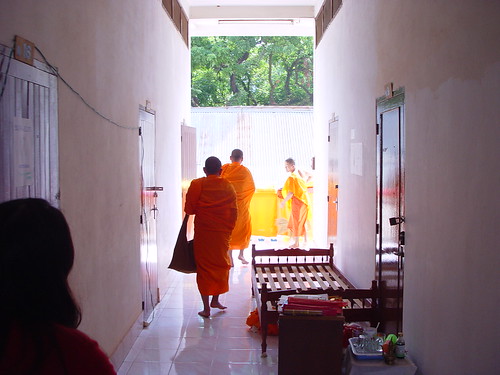
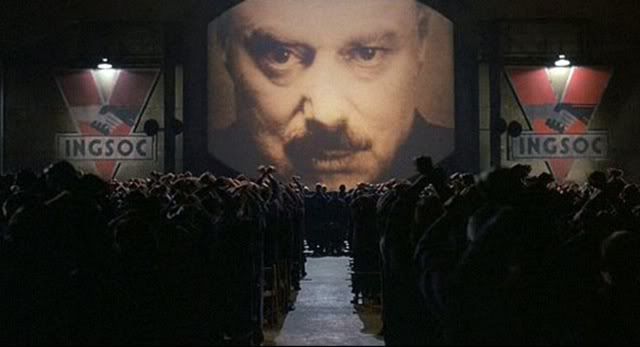





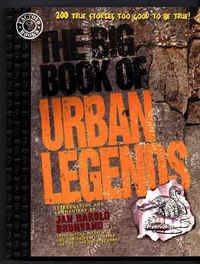
"He hates computers and mobile phones, too. “Words that come from a machine have no soul,” he says, adding that people who use such machines have lost all politeness and sense of proper style."I can empathize. It's often been a point for me to always hand-address the envelopes and to take care with the inscriptions in my books that people order directly from me. A well-written note and that personalization feels more like what I always hope the whole encounter with my book will be: Not merely ink before eyes, but the soul talking to another soul.
"Let's take the most explosive cut in the film: the one where we go from General Westmoreland saying, 'The Oriental doesn't put the value on human life that we do in the West," to the little Vietnamese boy weeping at his father's funeral. If you put Westmoreland next to a shot of American soldiers in Vietnam, it gives the impression that all of them believe what Westmoreland says, which isn't true. If you put it next to stock footage of the French in Indochina, you give the impression the whole thing has been a racist campaign, which also isn't entirely true. I thought Westmoreland's quote should be juxtaposed with a scene of what the wages of war actually are. It's always, first, about death when you go to war. And the people who the most dying in Vietnam were the Vietnamese."
From the Asian American Student Union (AASU), University of Wisconsin Madison
WHAT: Asian American Voices: “Reclaiming Our Past: The Untold Stories of Asian America” with special emphasis on the life of James Wakasa
Collaboratively, Asian American Student Union (AASU), Asian American Studies Program, Association of Asian American Graduate Students (AAAGS), and Asian Pacific American Law Student Association/ South Asian Law Student Association (APALSA/SALSA) brings to the UW Campus a three day event to honor and remember James Hatsuaki Wakasa, a Japanese American with a connection to UW Madison.
Born in Japan in 1884, Wakasa came to the United States and made his home in various places in the Midwest. He attended Hyde Park High School in Chicago and eventually completed a two year post graduate course at the University of Wisconsin-Madison in 1916. Working as a cook, he lived in Iowa and became an U.S. Army cooking instructor during the First World War. He eventually moved to San Francisco and in 1942, he along with other Americans of Japanese descent were rounded up, forcibly removed from their homes and sent to the Tanforan Assembly Center and then to Topaz, the War Relocation Authority camp in Utah. On the evening of April 11, 1943, he was shot to death by a Military Police sentry.
At the time of his death, he had been in the United States for forty years, many of those spent in the American heartland. His killing became one of the more controversial incidents during the Japanese American internment.
To remember the life of James Wakasa, commemorate his death, learn the lessons that the Internment can teach us about contemporary issues such as the deprivation of civil liberties during war, Guantanamo Bay and its constitutional implications, as well as the fraught situation of immigrants and their lives today, and the core matter of what it means to be American, we have come together for a three day event to "Reclaim Our Past" and ask the audience to ponder the many consequences of being asked "Where are from?" and "What does home mean to you?"
WHERE AND WHEN:

"...this tamarind tree was near a road, so it belonged to everybody. We should all share it, not destroy it. It enriched our lives and our happiness. Wherever there was a tree, there was happiness."
"Champa grows to medium height. It blooms all year round. It blooms in the rain. It blooms when the wind blows and blooms when the sun shines..."Overall, there are a number of messages within Bounyavong's story, which like many of the ones included in this collection might easily be dismissed more as anecdotes.
Vietnamese Women’s Spoken Word & Hip Hop Show: April 10th
Weisman Art Museum
$5/3 for students & Loft members



 Equilibrium Spoken Word and Hip Hop Showcase: Jennii Le,Sahra Nguyen, and Magnetic North (Derek Kan and Theresa Vu) with emcee Linda Nguyen. The Weisman hosts nationally renowned performing artists in this special rendition of the Loft Literary Center’s “Equilibrium” series at the museum. The program begins with performances by two of the nation’s most talented spoken word artists, Jennii Le and Sahra Nguyen. Brooklyn hip-hop duo Magnetic North, featuring Theresa Vu and Derek Kan, headlines the show.
Equilibrium Spoken Word and Hip Hop Showcase: Jennii Le,Sahra Nguyen, and Magnetic North (Derek Kan and Theresa Vu) with emcee Linda Nguyen. The Weisman hosts nationally renowned performing artists in this special rendition of the Loft Literary Center’s “Equilibrium” series at the museum. The program begins with performances by two of the nation’s most talented spoken word artists, Jennii Le and Sahra Nguyen. Brooklyn hip-hop duo Magnetic North, featuring Theresa Vu and Derek Kan, headlines the show.
Cosponsored by the Weisman and the Loft Literary Center. Equilibrium is the Loft’s groundbreaking series engaging communities of color with spoken word performances by the brightest local and national talents.
Galleries open at 7:00 p.m. Tickets at the door. In collaboration with the Weisman Art Museum'sChanging Identity: Recent Works by Women Artists from Vietnam. www.weisman.umn.edu

Instead of the production, it is the Western consumption of Chinese art that deserves our scrutiny. By turning Chinese art into the latest trend, we have extended the global transformation of serious art into a speculative commodity, supported the soft power strategy of an oppressive state, and reveled in the negative force of an avant-garde linked to an authoritarian regime not seen since the Futurism of Fascist Italy. We have shipped our vanguard dreams abroad, and we have brought back home an imitation art, cheaper, more compelling than the real thing, but containing the fatal taint of melamine.


